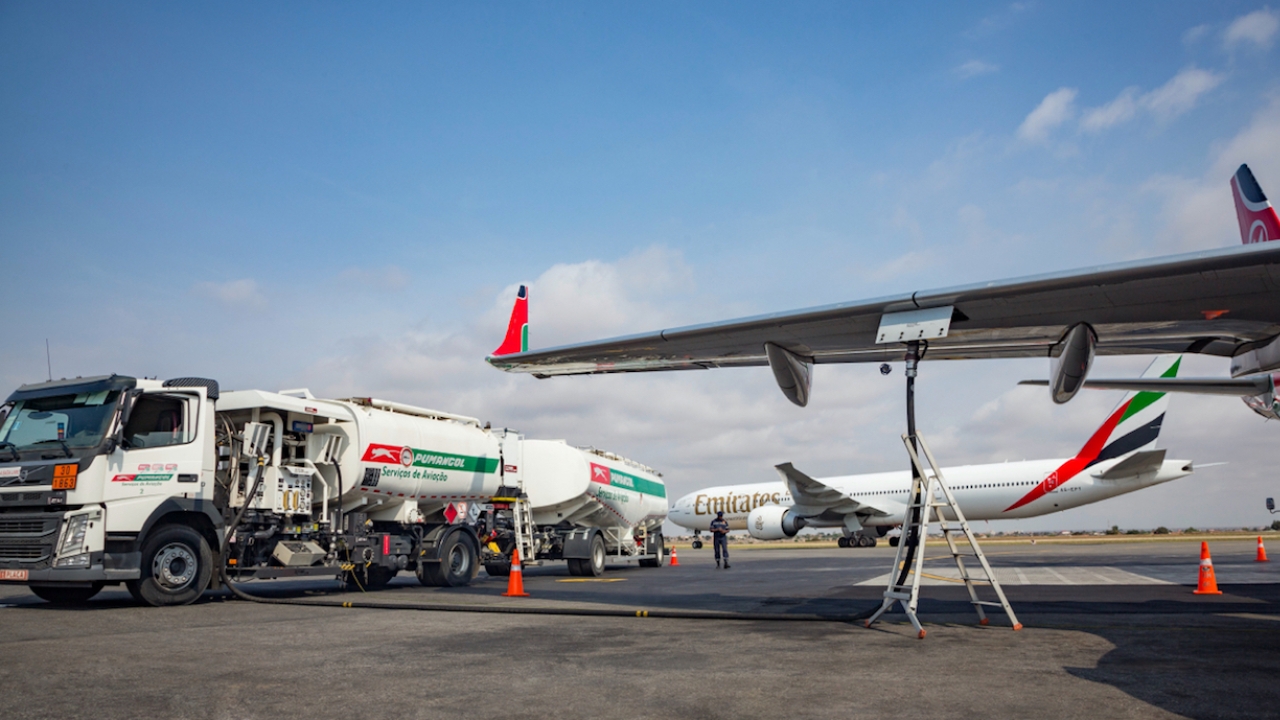Why playing monopoly can be good for aviation fuel prices
Botswana, Malawi and Zambia are some of the few countries in the world which still regulate the price of aviation fuel. This has led to a fuel supply monopoly, which raises concerns that the sole supplier may be taking advantage of their position to overcharge – and perhaps under-supply.

Out on its own: Puma Energy has a monopoly on fuel supply in Botswana. Picture: Puma Energy.
Before 2012, the supply of aviation fuel in many of the landlocked southern African states was largely left to the free market.
However, the market failed in 2012 when a perfect storm hit aviation fuel supply across the region.
After the economic crisis of 2008, the price of oil had peaked and remained stubbornly high. And then, for southern Africa users, the main fuel pipeline from Durban had been contaminated.
These factors caused a spike in the fuel price and then a ‘dry-out’ at the pumps.
There was an outcry from the aviation industry and a number of governments, notably Botswana, Zambia and Malawi, (as well as India,) decided to regulate the supply and price of JetA and Avgas.
The result of regulation was that, for aviation fuel supply in these countries, a sole supplier, Puma Energy, was appointed, creating a monopoly.
Under the Puma deal there were complaints that the price of fuel was too high and that there was little incentive to invest in fuel supply infrastructure at remote airports, thus constraining the growth of aviation. Further, since 2012, the fuel markets have been more stable with no interruptions in supply, causing many to question the justification for a monopoly.
Most countries regulating JetA supply have adopted a fixed price approach. However, evidence, particularly from India, shows that this increases the opportunities for government to extract revenue from levies and taxes. And, notably, Africa already has one of the most heavily taxed airline industries in the world.
Numerous studies, including by organisations such as the International Air Transport Association (IATA), have shown that a healthy African airline industry is essential for the growth of the continent’s economies. However, high input costs limit air connectivity, which, in turn, inhibits trade in low-weight, high-value goods, as well as vital tourism and investment.
Many users called for aviation fuel supply to be de-regulated by opening it up to other suppliers. It was expected that a more open market would reduce prices by removing the opportunity for predatory pricing.
A formal study was commissioned to examine the effectiveness of the regulation to protect consumers. This assessed the regulations’ effectiveness in controlling windfall profits and monopoly pricing.
In a finding that surprised many critics, the study found that the regulations actually benefited the consumers in that they protected them against opportunistic monopoly pricing.
This was achieved by the regulator having a fuel cost ‘slate’, which controls the profit margins of the supply chain by setting a maximum price ‘ceiling’ that they could charge, and then compensating for over or under-recovery.
The study also found that, before regulation, the airline industry had been harmed by the volatile fuel price and disruption of supply. However, after regulation, the industry had shown steady growth – up to the Covid-19 pandemic. The monopoly had not, therefore, provably inhibited economic growth.
It became apparent that the positive impacts of fuel price regulation – reduction in the high risk of predatory pricing, providing consumer protection, and stabilisation of the supply and retail price – outweighed the claimed negatives, which included an inflexible approach in price determination, a lack of transparency in deriving the fuel price ‘slate’, and a failure to reduce the barriers to entry.
It was evident that deregulation would only be possible if more than one supplier could be attracted. This was, however, unlikely as the volumes were too small to justify the required investment by a second supplier in storage tanks and pumps, especially in remote locations.
Alternatively, it was proposed that the state should own the pumps and storage facilities at its airports and allow more than one fuel reseller to use the facilities. The fuel storage tanks and pumps are currently all owned by Puma Energy, which would be unlikely to share the facilities with other fuel retailers.
Given the low volumes and large distances involved in trucking fuel to these airports, plus the considerable cost of duplicating the tank and pump infrastructure, it was concluded that continuing the monopoly was the best way to continue.
Stay up to date
Subscribe to the free Times Aerospace newsletter and receive the latest content every week. We'll never share your email address.


